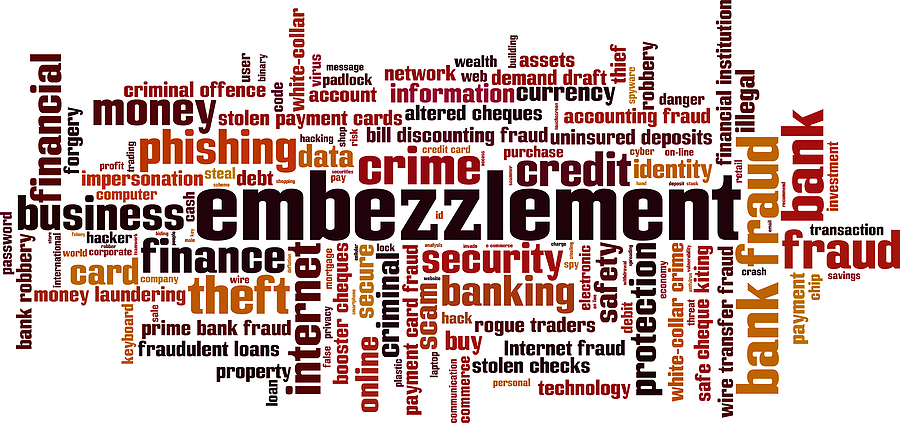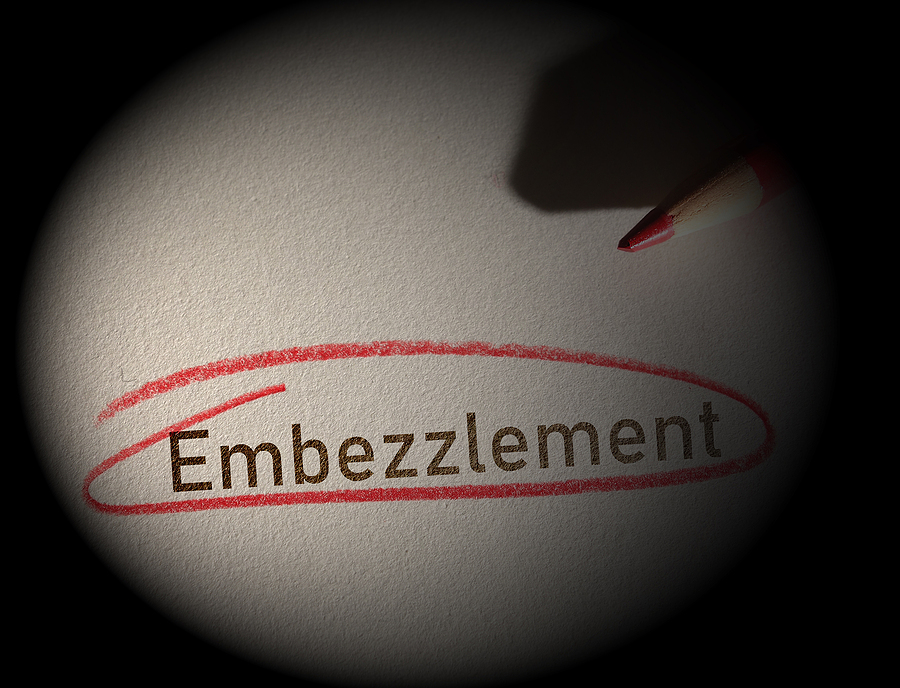A financial crime that regularly makes headlines, embezzlement is a form of larceny that involves the unlawful misappropriation of funds by someone trusted with their safekeeping. The offense – which can range from the misdirection of small amounts from company petty cash to the criminal diversion of significant corporate assets – carries serious legal ramifications. For anyone who has been implicated in or is concerned about potential embezzlement charges, navigating the complex legal landscape is critical.
This in-depth blog post is designed to demystify embezzlement charges, outline the intricate web of laws surrounding this offense, and offer key guidance on legal defenses and next steps for both individuals and businesses.

Understanding Embezzlement Laws
The Definition of Embezzlement
In its simplest form, embezzlement is the act of wrongfully taking money or property entrusted to one’s care and control, often through a position of employment or fiduciary duty. What sets embezzlement apart from other forms of theft is the existence of a relationship of trust between the accused and the alleged victim, typically a business entity. However, proving embezzlement requires more than just the improper use of funds; it necessitates the ability to demonstrate the accused’s legal relationship with the assets and their subsequent fraudulent appropriation.
Types of Embezzlement Charges
The nature and severity of embezzlement charges can vary. Commonly, they are viewed as white-collar crimes, but the scale can range from small-scale theft to grand-scale financial scandals. Charges are often categorized by the amount misappropriated — so they can be charged as a misdemeanor or felony.
Indiana recognizes various types of embezzlement, with each carrying distinct legal nuances and consequences. Some common embezzlement charges include:
- Employee Theft: When an employee appropriates funds or property for personal gain, they may be charged with employee theft, a form of embezzlement.
- Financial Misconduct: This charge encompasses a broad range of financial crimes, including fraudulent use of company credit cards, forging checks, or siphoning off funds through deceptive practices.
- Public Corruption: In cases involving public funds, the charge may escalate to public corruption, a high-profile and politically significant form of embezzlement.
Understanding the specifics of each embezzlement type is essential for both defendants and legal professionals aiming to mount an effective defense or prosecute the accused.
Legal Consequences for Embezzlement
In Indiana, the penalties for an embezzlement conviction vary significantly based on the value of the property or money embezzled and can range from misdemeanor to felony charges. For an amount under $750, it’s generally considered a misdemeanor, potentially resulting in up to a year in jail and fines. For amounts over $750, embezzlement is classified as a felony, with penalties increasing with the value of the embezzled property. The most severe cases, involving embezzlement of over $50,000, could lead to a Level 5 felony charge, punishable by up to six years in prison and hefty fines exceeding $10,000.
Potential Fines
Additionally, individuals convicted of embezzlement may also be ordered to pay restitution to the victims, compensating them for their financial losses. Fines associated with embezzlement cases serve not only as punitive measures but also as a means by which the misappropriated funds can be restored to the rightful owner. The actual extent of fines can vary widely depending on the jurisdiction, the specific circumstances of the case, and the defendant’s criminal history. Substantial fines are not uncommon for embezzlement convictions, underscoring the courts’ commitment to deterring and penalizing such acts.
Impact on Businesses and Individuals
Businesses
Corporate embezzlement can significantly harm a company’s reputation, its financial health, and the trust of its stakeholders. The discovery of such actions may lead to internal investigations, audits, and even legal action against the business itself. Beyond the immediate financial implications, organizations can also face the more intangible, yet equally damaging, effects such as reduced employee morale and a tarnished brand image.
Individuals
For individuals accused of embezzlement, the toll can be similarly devastating. The ordeal can lead to loss of employment, severe reputational damage, and financial loss stemming from legal fees, fines, and restitution payments. In some cases, the impacts can extend beyond personal and professional spheres, leading to a breakdown in personal relationships and psychological distress.
Steps to Take When Facing Embezzlement Allegations
The first steps to take when dealing with embezzlement allegations involve remaining calm and collecting all relevant documents and evidence. It’s crucial to exercise your right to remain silent and seek legal counsel immediately. Your attorney can then assist in communicating with law enforcement, reviewing the evidence, and crafting the best possible defense strategy for your specific circumstances.
Importance of Criminal Defense Representation
Given the serious nature of embezzlement charges, legal representation is not just advisable – it’s essential. A skilled criminal defense attorney can assess the strengths and weaknesses of your case, guide you through the legal process, and provide critical support as you face potentially life-altering accusations. Their expertise is particularly important in navigating the intricacies of embezzlement laws, which often require a deep understanding of financial transactions and corporate operations.
Common Defenses in Embezzlement Cases
There are several legal defenses that can be employed in embezzlement cases, including lack of intent, truthful explanation of financial discrepancies, no fiduciary relationship, and mistaken identity. Each defense strategy requires a thorough examination of the facts and circumstances of the alleged embezzlement. An experienced criminal defense lawyer can help you determine which, if any, defenses are appropriate for your case.
Legal Strategies to Combat Charges
Beyond specific defenses, there are strategies to combat embezzlement charges more broadly. These can include cooperating fully with law enforcement and the prosecution to demonstrate innocence or a willingness to make restitution. In some cases, pre-trial diversion programs or plea bargains can also lead to more favorable outcomes, particularly for first-time offenders. Your attorney can help you evaluate these options and pursue the one most likely to result in the best resolution for your situation.
Conclusion
Facing embezzlement charges is undoubtedly a daunting experience. The stakes are high, and the road ahead is fraught with legal complexities. Whether you are a corporate victim seeking to understand your legal rights or an individual navigating the treacherous waters of an embezzlement allegation, seeking professional advice and representation is critical. By understanding the laws, potential penalties, and available defense strategies, you can begin to decipher the complex jargon and plot a course toward a more favorable outcome.
Remember, the information in this post serves as a general guide. For personalized advice and guidance tailored to your specific situation, it is paramount to consult with a qualified legal professional. Do not hesitate to reach out to a criminal defense lawyer with experience in white-collar crimes if you are facing embezzlement charges or if you seek counsel as a victim of this offense. Legal experts can provide the nuanced advice you need to respond effectively and protect your rights.
Are you a business owner or entrepreneur facing embezzlement charges in Indiana? Contact the Law Office of David E. Lewis at 317-636-7514 to book an appointment with an experienced embezzlement defense attorney in Indianapolis, Indiana. We will get the best possible outcome for your criminal case!
Related Posts:
From Insider Trading to Embezzlement: Exploring Common Types of White Collar Crimes
Forgery Charges in Indiana: What You Need to Know
Top 4 Ways to Avoid Bankruptcy Fraud


